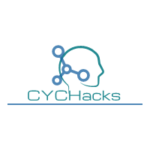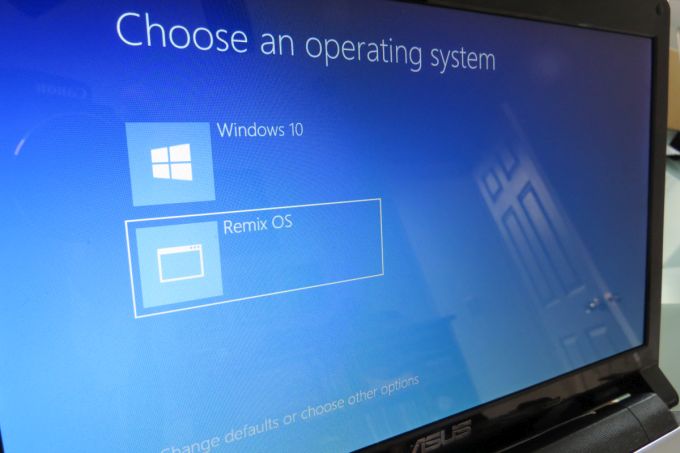Remix OS is a free software operating system for desktop computers using x86 and ARM architectures, which, until recently, shipped with some of the most popular third-party mobile applications available on the market. When the mobile computing market’s second-generation devices began shipping, several companies like BlackBerry, HTC, Motorola, and Samsung became interested in incorporating operating systems into their devices in order to allow users to run many different types of mobile applications on the same core hardware.
After developing a series of alpha-release devices, including the Blackberry Playbook, the Motorola MiOS, and the Samsung Galaxy Tab, the company finally released its commercial version of the operating system. The new release, dubbed “mallow,” is currently the most popular operating system that has ever been released for a mobile device. Users have praised the usability of the new version of Remix OS, as well as the dependability of the operating system.
Like most operating systems, Remix OS requires a large number of pre-compiled libraries to be installed on the computer before installation can begin. These libraries usually include the likes of Java, Flash, and Quicktime files, as well as many other common components.
However, because this operating system was developed as an open-source project, several developers took it upon themselves to port many of the older proprietary operating system software libraries into it. This allows users to use many more features that were not available on the original release of the operating system.
Users will be able to enjoy a much larger collection of apps, as well as desktop-like functionality, and all without having to pay for a license to do so.
Unlike many other mobile operating systems available today, Remix OS does not require a monthly payment to use the product. Users will also not be required to sign a long-term contract with the company in order to obtain the product or service.
This open-source software has already proven to be very popular among internet users who are looking to use a mobile operating system that is very simple and easy to use. It also enjoys strong support from the major corporations who own the rights to many of the programs and hardware components used in the system.
This means that Remix OS users will have access to the latest versions of the programs, which will continue to be upgraded as new versions are created.
Here are the Top 10 alternatives to Remix OS:
Table of Contents
Ubuntu
Ubuntu is a very popular Linux distribution composed mainly of open-source and free software written primarily for desktop and server platforms. Ubuntu is technically based on Debian, which means that Ubuntu is compatible with most common Linux distributions, including Red Hat, Gentoo, SUSE, Fedora, and Mandriva. In fact, Ubuntu was created to bridge the gap created by a large number of commercial Linux distributions.
Ubuntu is now the most used and popular free software platform on desktop computers around the world. It is used by millions of users, including governmental institutions, academic institutions, professional users, Internet marketers, website developers, website publishers, photographers, and many others.
Windows 10
Windows 10 is a new series of operating systems released by Microsoft and designed for use with the Windows operating system family. It’s the upgrade to Windows 8.x, released almost two years ago, and is the replacement to Windows Vista, released about a year and a half ago. Like Windows Vista, Windows 10 requires a relatively recent PC with an operating system that is made by Microsoft.
However, unlike Windows Vista, Windows 10 does not use the very latest version of Windows. The name “Vista” is taken from a Microsoft-developed operating system that used the same Windows interface (thus the name), but only in a ‘Deluxe’ edition.
Android
Android is a rapidly developing mobile operating system, based on the Linux kernel and various other open-source applications, developed primarily for touch screens mobile phones like tablets and smartphones. The Android software stack includes several distinct components. Some of its most popular components include Baseboard Management Interface (BMA), Image View Manager (IVM), Storage Management Interface (SMM), Media Access Control (MAAC), Activity Manager, Account Manager, Device Manager, Web Browser, Location Services, Titanium, and User Interface.
Each component can be customized and tested individually or together, which determines the nature and scope of Android development activities on the software side and on the hardware side.
Red Hat Enterprise Linux
Red Hat Enterprise Linux has become the most widely used open-source enterprise Linux platform in use today. Red Hat Enterprise Linux (ERL) is based on the Open Source community’s project Fedora. The project is a project of the Red Hat Company, a company that specializes in providing software products related to Linux. Red Hat’s ERL is one of the most complete solutions available for corporate users, offering comprehensive server support, powerful management tools, high-quality security packages, and abundant support for dozens of languages.
Fedora
Fedora which was developed as an open-source project, is an extremely popular Linux distribution mostly because it is free. It uses the very latest technology and tools and has an active and passionate user community that responds to requests for help and contributes to the development of new software. Many users find that while they need certain programs to run their day-to-day tasks, they prefer to have full control over these decisions, which is what Fedora strives to provide. Fedora also provides free support for third-party software like Skype, making it an excellent choice for web hosting and communication.
Windows 8
Windows 8 is an operating system, which was created by Microsoft, specifically as part of the Windows NT group of operating systems, originally released as a part of the Windows NT series of operating systems. It is now the replacement for Windows XP. Windows has replaced most of its OS counterparts since its introduction, including the older Windows Me, Windows 98, and Windows NT, and is considered one of the most popular operating systems in use today.
Linux Mint
Linux Mint is an Ubuntu-based community-driven operating system based upon Ubuntu that itself is based upon Debian and also includes a number of open-source and free software packages. It can offer full-featured out-of-the-box multimedia support for users who decide to add proprietary software like multimedia codecs to the mix. This means that users are not locked down by any sort of Linux OS feature and are given the freedom to install and utilize a wide range of media players, music players, video players, and other such software applications.
Linux Mint, however, does not offer the same media player and media server features that are found in some of the more popular Linux distributions like Fedora or Linux mint and are rather more focused on being a more affordable, user-friendly Linux operating system.
Apple iOS
Apple iOS is a user-friendly mobile operating system developed and released by Apple Inc. solely for the Apple hardware. It is the most widely used mobile operating system, which powers many of Apple’s mobile phones, including the iPhone and iPod Touch. The mobile operating system is based on the Mac OS X which was developed by the Apple Company and has been modified to run on different mobile phones.
Apple keeps the major updates of its operating system in a separate branch called the App Store, which attracts a large number of users looking for the latest apps and games. As per the latest statistics, Apple iOS has a daily active user of around 80 million, which makes it one of the biggest franchises launched by the Apple Company in recent times.
Tizen
Tizen is a very user-friendly and intuitive mobile operating system based on the Unix platform. Samsung’s TouchWiz operating system runs efficiently on Tizen OS. With Tizen, users can make full use of their Samsung devices like their Galaxy Tab, S Pen, and their Windows Mobile phones. Tizen also has a web browser, which lets users access websites wherever they are.
Chromium OS
Chromium OS is an open-source and free operating system based on the Linux kernel design. It is an upgraded fork of the Chrome OS project developed by Google. This OS has many new features that are aimed to provide users with a better browsing experience, faster start-ups, better security, and better overall system performance. In short, the aim of the Chromium Project is to provide an advanced graphical user interface system that runs very fast and requires less resource allocation than its traditional ancestor.
Alex is fascinated with “understanding” people. It’s actually what drives everything he does. He believes in a thoughtful exploration of how you shape your thoughts, experience of the world.








